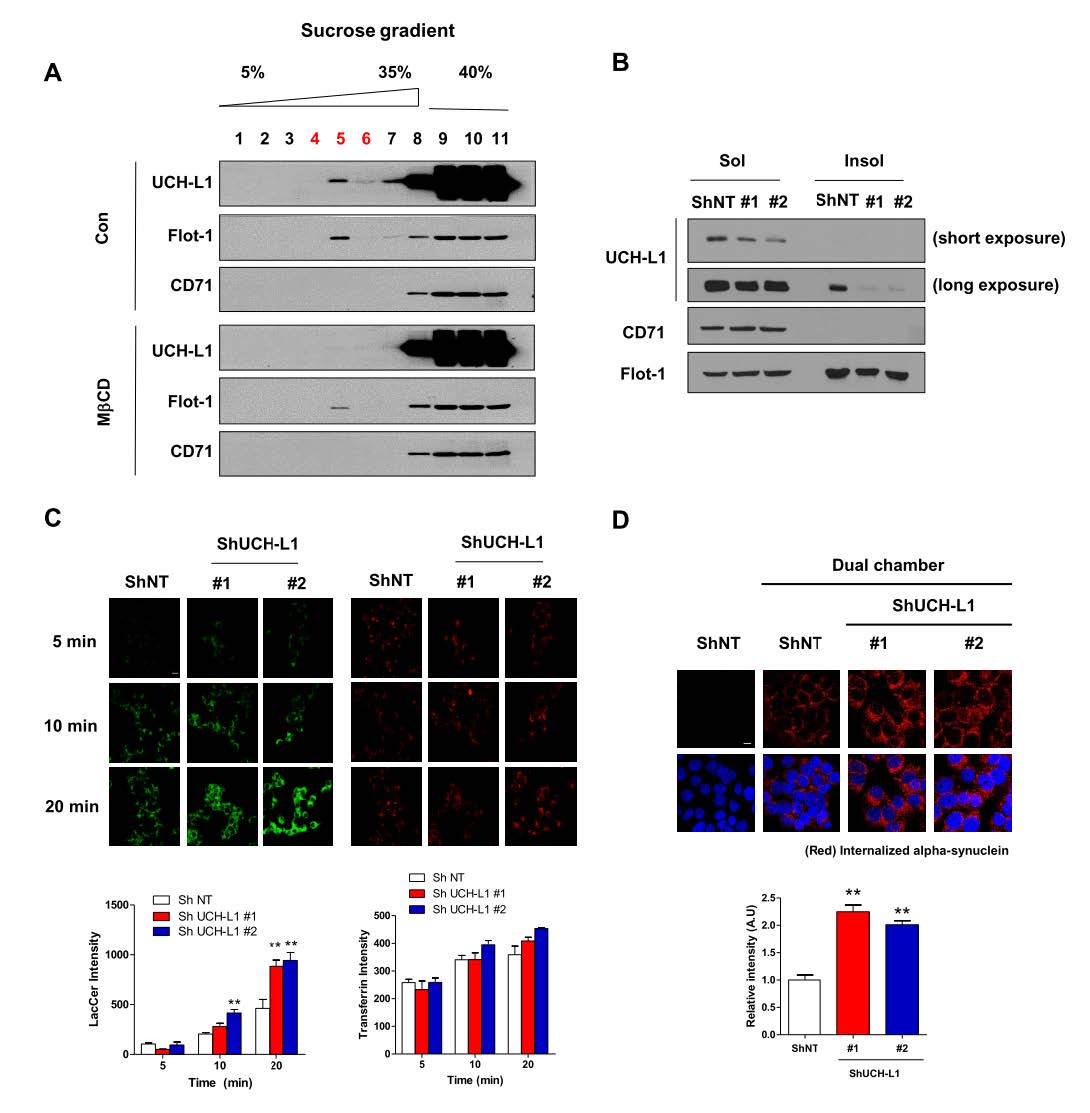Articles
Article Tools
Stats or Metrics
Article
Original Article
Exp Neurobiol 2018; 27(5): 377-386
Published online October 31, 2018
https://doi.org/10.5607/en.2018.27.5.377
© The Korean Society for Brain and Neural Sciences
Ubiquitin C-terminal Hydrolase L1 Regulates Lipid Raft-dependent Endocytosis
Seo-Jun Kang1,2,3,†, Jin Soo Kim1,2,†, and Sang Myun Park1,2,3*
1Department of Pharmacology, Ajou University School of Medicine, Suwon 16499, Korea.
2Chronic Inflammatory Disease Research Center, Ajou University School of Medicine, Suwon 16499, Korea.
3BK21 plus program, Department of Biological Sciences, Ajou University School of Medicine, Suwon 16499, Korea.
Correspondence to: *To whom correspondence should be addressed.
TEL: 82-31-219-5063, FAX: 82-31-219-5069
e-mail: sangmyun@ajou.ac.kr
†These authors contributed equally to this work.
Abstract
Ubiquitin C-terminal hydrolase L1 (UCH-L1) is a deubiquitinating enzyme that is highly expressed in neurons, and gathering evidence indicates that UCH-L1 may play pathogenic roles in many neurodegenerative disorders such as Alzheimer's disease and Parkinson's disease (PD). Additionally, lipid rafts have attracted interest in neurodegeneration as playing a common role in many neurodegenerative diseases. In the present study, we demonstrated that UCH-L1 associates with lipid rafts as with other PD-associated gene products. In addition, UCH-L1 regulates lipid raft-dependent endocytosis and it is not dependent on the expression and degradation of caveolin-1 or flotillin-1. Finally, UCH-L1 regulates cell-to-cell transmission of α-synuclein. This study provides evidence that many PD-associated gene products share common signaling pathways to explain the pathogenesis of PD.
Graphical Abstract

Keywords: alpha-synuclein, UCH-L1, Parkinson's disease, prion disease


